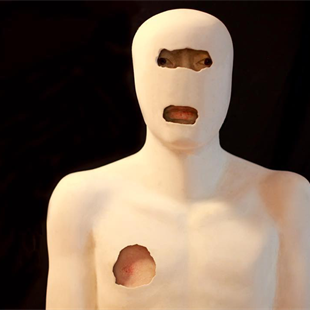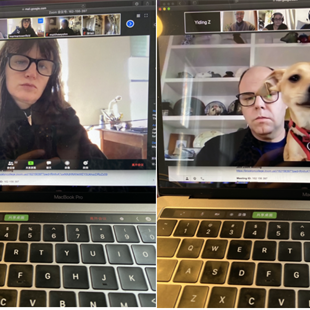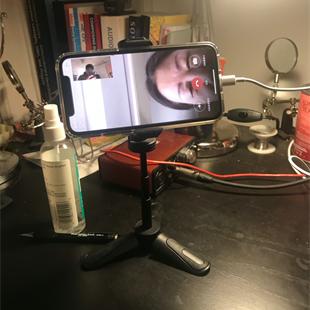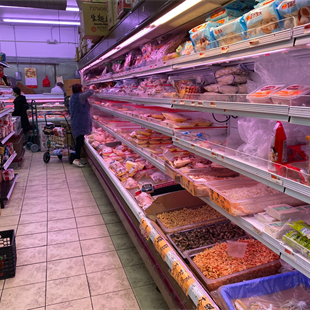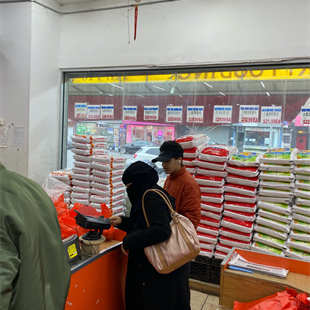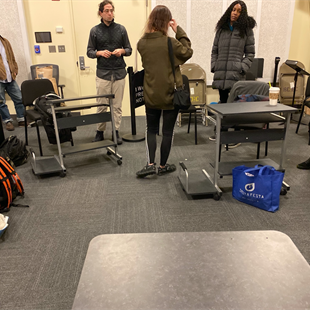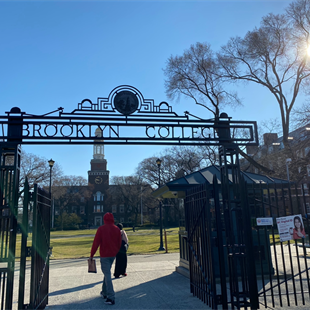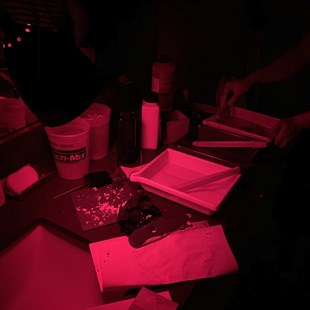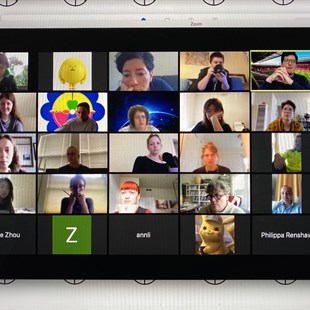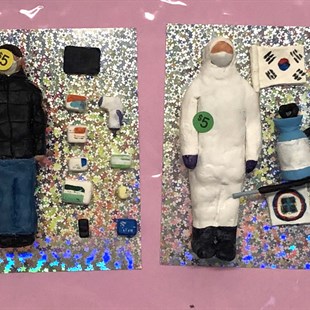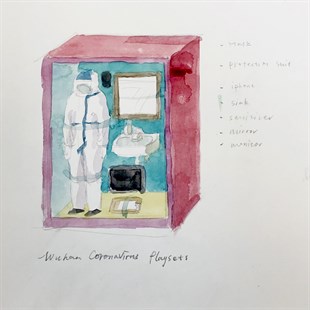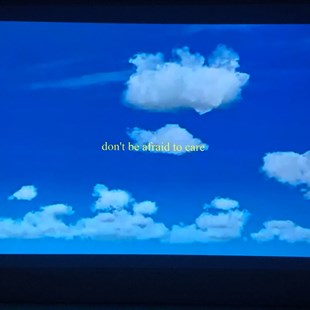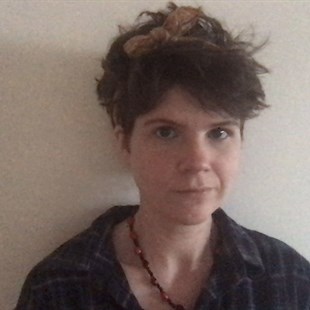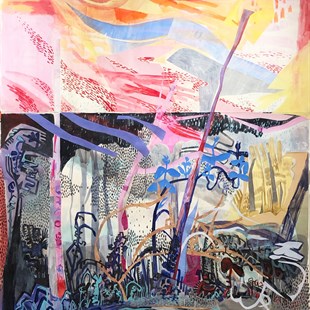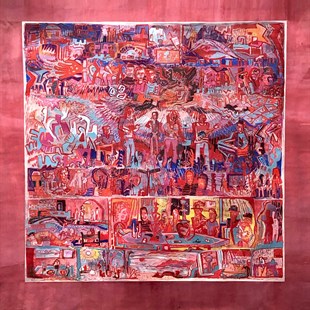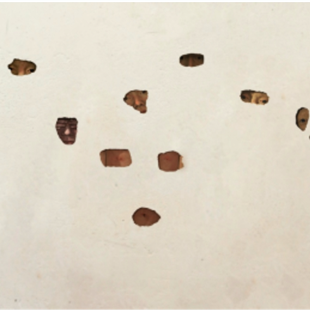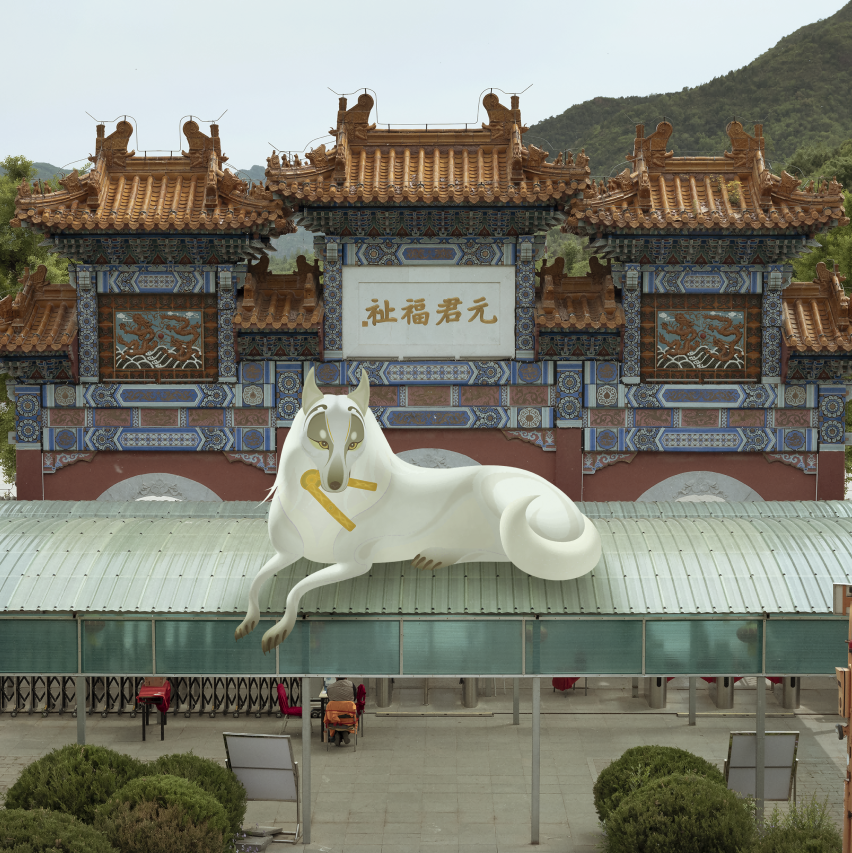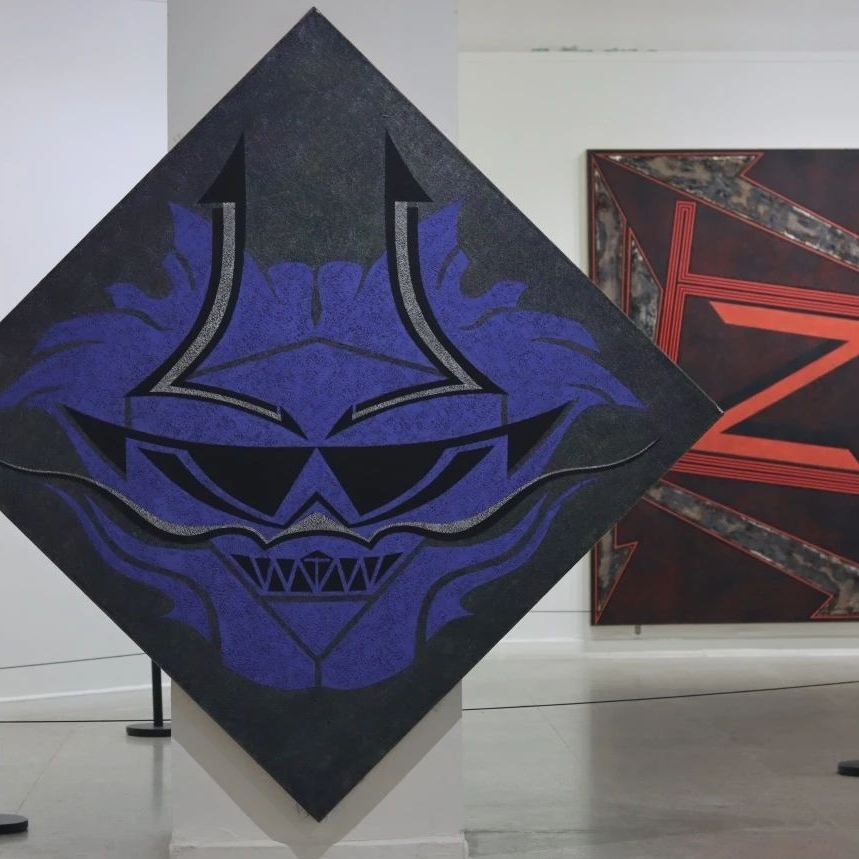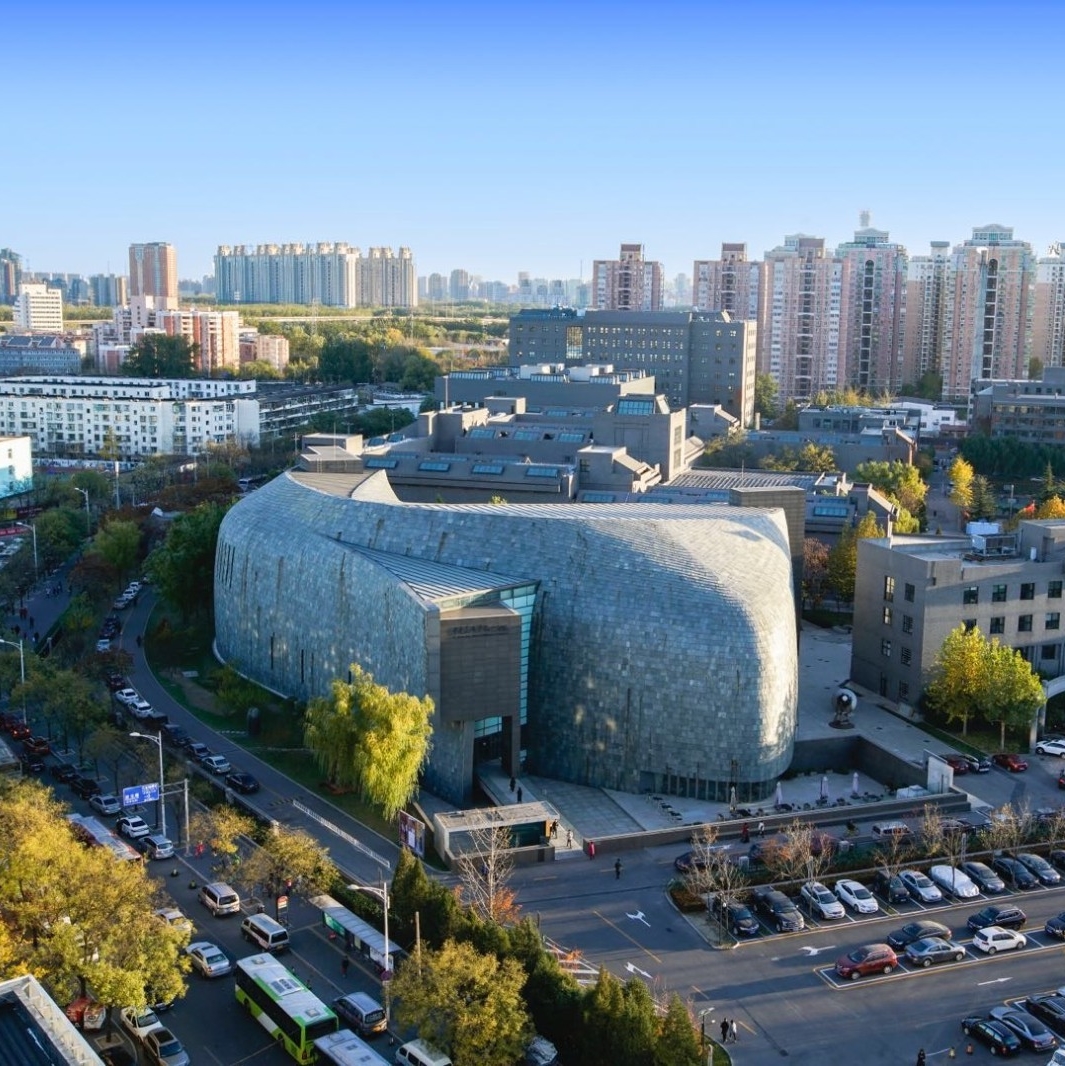
Editor’s Note:
With the grim situation of the COVID-19 pandemic spreading in the global community, students from overseas art schools are also facing increasing anxiety. How to solve the problems such as school suspension, graduation work as well as the dormitory closure? For international students from all over the world, when they confront various pandemic prevention policies in different countries, either staying where they are or going back to their own country, could be a tough decision for them. No matter what choice they make, they are under tremendous psychological and social pressure.
During this special period, CAFA ART INFO hopes to share real situations and opinions from this group of students. What is the status of the pandemic situation in the country they are staying? We pay attention to their current state. All questions are expected to be answered by them. All the concerns and encouragement we would like to share with them would be presented in these words.
CAFA ART INFO: Can you briefly introduce your situation in studying abroad?
Quinn McNichol: My name is Quinn McNichol. I am from Philadelphia, PA and I am at the University of Washington in Seattle, studying to earn my MFA in Painting.
Lai Junjie: My name is Lai Junjie from Guangdong. I have just graduated from Florence Academy of Fine Arts in Italy.
Joey: I am originally from Chengdu, China and now a candidate of Master of Fine Arts at University of Washington, Seattle.
Fan Wu: My name is Fan Wu (Abigale), from China, Beijing. I received my BFA degree from Rhode Island School of Design, now I am a first-year MFA student studying
(Ceramics and Sculpture) at California College of the Art, in US.
Yiding Zhang: My name is Yiding Zhang, from Wuhan, China. I’m currently studying MFA Sonic Arts in Brooklyn College, City University of New York.
CAFA ART INFO: Where are you currently? How does the COVID-19 pandemic directly influence you? What are your current life situation and mental health?
Quinn McNichol: Currently I am in my bedroom, in the house I live in Seattle. I rent a room in a house with three artists. Two of us are in the house - the third is currently staying with her boyfriend. Because we are not leaving the house right now, the way I socialize has changed, and the way I go about my everyday life has changed. I go for walks around the neighborhood instead of in the parks. I hang out with friends on Zoom or FaceTime.
We are on Spring Break right now and our class was going to have a group show and a trip to San Francisco. I was going to have a good friend visit over the break and show her around Seattle. But it’s all cancelled!
I have had feelings of anxiety, fear and depression… but I have been working really hard to keep them at a manageable level. Things make me sad, but I am actually doing ok. I’ve coped with anxiety throughout my life and it makes it even easier for me to adjust when I really need to.
Lai Junjie: At present, I am in Rome. As Rome was in lockdown, I can't go back to Florence. The coronavirus basically disrupted most of my plans. The original art exhibition plan for spring of this year and the communication plan between China and Italy are being shelved. I returned to Guangdong on January 21 and came back to Italy on February 6. So it is the second time that I have experienced the outbreak of the coronavirus. That’s why I am not particularly nervous. I expected that the government would adopt measures to control, so I’m staying securely at home.
Joey: I am currently in Seattle, studying and working at home every day. The biggest impact of the pandemic is that I can't go to the studio and school. Before the virus broke out in the United States, studios and schools were where I went every day. A lot of the work I was doing has now stopped. I am not a person who likes to work at home. In the previous month, I have been making small sculptures and video installations about the COVID-19. Suddenly, I was in the center of the storm myself. The amount of overwhelming information drowned me. I just knew that being in it, I felt unreal or even confused about what was happening. I would have taught a basic sketching class in the spring semester, but now I can only do online teaching. I can only take the time to adapt and adjust to all the changes brought about by quarantine at home.
Fan Wu: Currently I am living in San Francisco, California. My school has already suspended all the classes from March 12th, we will resume with remote teaching from the beginning of April to the end of the spring semester. School’s ISAP office has informed us that our F-1 visa will not be affected.
Yiding Zhang: Now I’m still in New York, staying in my apartment with my two roommates. I didn’t choose to go back to China. One thing is that my hometown Wuhan is still in lockdown, so I’m not in the same circumstance as other Chinese students, to be frank, I don’t have many options. I would rather just stay where I am than put myself into high risk on the airplane with more than 10 hours flying time.
Our campus was closed in the middle of March, when everyone heard about the outbreak. Actually I’m not very surprised with the situation in New York, I know the day will still come but I just didn’t think it would be this fast that bad news would come. We are forced to stay at home for a week, which is called “instruction recess” from Thursday 12th March to Wednesday 18 March. Then we started distance learning—an online class that is ongoing.
There is something being interrupted by the outbreak of virus. I prepared some of my graduate works over the winter break when I stayed in Wuhan, due to the virus I had to change the schedule and tickets. Fortunately, when I left Wuhan it was the day of lockdown, then I had 14 days of self-quarantine at the beginning of this semester. Now I’m waiting for Wuhan to reopen the city, and then I hope my parents can ship my graduate works to New York, but it’s just a guess as New York is now facing the same situation as Wuhan and it seems like worse than before.
I try to be positive every day, to have a good mood in my house. I think my experience is quite different compared to most of other Chinese international students. I was born and raised in Wuhan, this is the place I grew up. The other Chinese students have a choice, but I don’t, and I can’t. So when the virus outbreak happened in New York, I was really scared and anxious, especially when I heard the news and how many cases increased per day. Now I try to concentrate more on what I’m doing: assignments, creating music, attending online class, etc., and try not to overthink the COVID-19.
In terms of my Visa, I now feel like it is “suspended”, because I was applying OPT, the Optional Practical Training Visa, for international students to stay in the US for one year after they graduate. But now the whole campus is closed, I sent an email to the international students office but didn’t get any reply. I think I can still apply for that, but just need to use a distance/online application, I will figure it out.
CAFA ART INFO: What is the current pandemic prevention policy in the country you are studying/staying?
Quinn McNichol: Currently we are in the first week of the governor’s order to stay at home for two weeks. Before that, it was suggested we stay home. Now it’s more serious. We are involved in social distancing, washing hands, etc.
Lai Junjie: In terms of virus prevention and control, basically Italy has learned China's model. But the outbreak has not been effectively controlled yet. At the moment, North Italy has become the worst-hit region, with hundreds of people dying every day. Some hospitals, due to the lack of ventilators, stipulate that people over 70 years cannot use the ICU. The main reason for the spreading is that the Italians are too liberal and they are reluctant to obey the government's arrangements. They even organized a big demonstration to protest about the lockdown of the city on March 7th and nobody wore masks during the parade. They thought the coronavirus is a kind of influenza that it is just harmful to elderly people who are over 76 years old, which led to the current tragedy. Up to now, many young people still don't wear masks when they go out or even find some reasons, such as walking their dogs, to hang out.
Joey: The governor of Washington State Jay Inslee just announced a stay-at-home order with some exceptions for essential activities and businesses, which is effective for at least two weeks.
Fan Wu: My city, San Francisco, started pandemic prevention pretty early. First our mayor London Breed declared a city emergency, then there is the “shelter-in-place” announcement. Citizens should remain in place and only go out to take care of essential needs. Most of the restaurants and retail stores are temporarily closed or switched to delivery only. However, it is disappointing for us to notice that on both CDC and school website, they are suggesting people not to wear facemasks unless they are sick.
Yiding Zhang: I’m not really sure how they react to the virus, I saw many news and reports, some good, while some are bad. I don’t know about the whole nation (America) but at least in New York state or city, the government is working really hard to saving their people and lives.
In the street, I see that there are more people willing to wear masks in New York, and many Chinese supermarkets are shifting their opening time. All the customers have to wear masks and gloves before they enter the store for shopping.
CAFA ART INFO: How is your university responding to the outbreak of the pandemic? Does your school start a contactless model, such as online classes?
Quinn McNichol: The school has been closely following the outbreak, and doing all it can to keep us from having access to our facilities and studies that are allowed by law. But as the laws are becoming stricter, so does our access to these things. We are doing all the classes online now, and only individuals who absolutely must use the facilities are granted access. So for at least two weeks, I have been moving my creative practice to my home and will be taking classes online.
Lai Junjie: All academies of fine arts in Italy began to close a few days ago, but they were not closed initially when the virus broke out. At present, online classes are adopted for teaching students.
Joey: Yes, the University of Washington will have all the classes taught online in the coming quarter.
Fan Wu: My school CCA suspended in-person classes and will resume with online classes in April. Studios and workshops are currently closed, and their open hours will be different starting from April.
Yiding Zhang: Yes, we have been in the “distance learning” classes since 18th March, and everything is going very well. My university is very concerned about COVID-19 and they have been very closely monitoring since the outbreak. The University suspended the classes for one week from March 14th, and started online courses the following week.
CAFA ART INFO: In this special period, will the school support you in terms of medical advice or hospitalization if you were feeling unwell?
Quinn McNichol: I think so. I have health insurance through the school. I feel safe at UW, and think they would do their best to help me if I needed it.
Lai Junjie: In this special period, if you feel uncomfortable, the school will not help you because the school does not have this obligation and function. If you feel that you are infected with the virus, you need to call a medical organization designated by the government and ask a doctor to come to check. Therefore, if you feel unwell, you can only access the Chinese Students’ Association, Embassy, Consulate and some Chinese’s organizations to seek help.
Joey: Yes, it will.
Fan Wu: They will, CCA website said if anyone is sick they should report a concern to the school and fill out the health form.
Yiding Zhang: In fact, there are two Brooklyn Students who have been tested “positive” in last two weeks, now they are in the hospital under medical care
CAFA ART INFO: Do you confront various social and public pressures in the different stages of the pandemic before and after the international outbreak?
Quinn McNichol: As a 30-year-old white human, I personally have not faced any racism or violence. I have heard stories from friends who have been avoided or had nasty comments made at them for being Chinese. Friends have also experienced fights in grocery stores, and on the streets. It hurts me a lot to see all of this. I am playing my part by remembering to tell friends and family that I love them, and to listen when someone needs to express their pain, fear or anxiety.
Lai Junjie: At the beginning of the outbreak, I heard some negative comments from Italian friends, saying that we have polluted the environment all the time throughout the world, the people do not pay attention to public health, eat wild animals, etc., but now, Italians are also aware of their own problems.
Joey: I don’t really care much about how other people react to or talk about this. Because it would not change what I do. This is about life, not anything else.
Fan Wu: There are lots of bad racist incidents on social media, and some comments are even irritating. Especially as Chinese students, we have to deal with not only the virus but also the stare of other people. We always wear facemasks when we go out, but they don't think this prevention is necessary. On the other hand, we definitely feel offended when someone is calling the coronavirus “Chinese Virus” on the news.
Yiding Zhang: Luckily I haven’t suffered any discrimination. However, I still feel shame and disappointed with the “Chinese Virus” proposed by Trump. He is a very irresponsible person, also as the President in the United States, he should know that some irresponsible remarks will subtly cause serious consequences and influence American society.
It seems that even though at this point, some politicians in their countries try to set up “enemies” rather than create global cooperation. Sometimes I feel sad. I don’t think we should blame anyone or any race. I think when facing the virus, we are equal. It’s inappropriate to blame who’s fault it is or who brings the virus to the world before we find the truth.
CAFA ART INFO: How do you plan to spend this special period?
Quinn McNichol: During this time, I will make art at home. I will cook nourishing food, focus on my health, keep up with my stretches. Recently I have been going to for a walk everyday at sunset. Even if it’s cloudy and you can’t see it setting I know it’s going down and it’s beautiful somewhere. So I’ll keep going for sunset walks. I’ll go to friends’ virtual concerts and have a virtual happy hour with friends near and far. I will do my studies and teach my drawing class to the best of my ability. I’ll keep on with my life and perhaps even make improvements…
Lai Junjie: In this special period, I will focus on studying, drawing and writing articles.
Joey: It is a challenge itself to keep working like how I am supposed to at the studio or school. I have a feeling that when I would finally adapt to it and figure out how I should spend this special period in a more meaningful way, it has already ended.
Fan Wu: I will stay at home and take online classes until May. After the spring semester ends, I will decide whether to go back to China or not, depending on the situation.
Yiding Zhang: The only thing I can do in this period I think, is to finish this semester, and graduate.
CAFA ART INFO: Will the experience of the COVID-19 pandemic influence your art creation?
Quinn McNichol: Absolutely. I’m really sensitive to my surroundings and to what is going on around me. It comes through me and out into my work. I do not know what it will look like, I do not have a plan, but I know my work will be affected by this.
Lai Junjie: This virus affects the normal life of all of us. I am a student who has experienced the outbreaks within and outside China. Two weeks ago, an Italian friend of mine died because of the coronavirus. So this epidemic is a big influence on me, and it will also affect my creative ideas more or less. But I don't know if it's god's design. In the second year when I arrived in Italy, I had a strong feeling that Italian's inherent superiority will isolate them from reality, so I started my series creation about “Utopia”.
Every day I read the news and saw that the pandemic was more and more severe in Europe, which reminds me of the black plague before the Renaissance. The cruel pestilence made the church bell ring no longer and those who gathered in the church to pray were infected one by one. Facing the cruel reality, God can only retreat timidly. Only the people can see the future of who lived like Dr. Rieux in the novel La Peste. People need to face reality in the right way. "Utopia" is like the "appeasement policy" for the plague. People who are hiding will die cowardly, until the last one. Henceforth, "Utopia" will eventually disappear.
Joey: I have been making art about COVID-19.
Fan Wu: I’d say that the COVID-19 will not become part of my art creation, but it will indeed affect my working format. My artwork is based on ceramics sculpture; it requires certain processes. Due to the current condition, I am creating a new way to express my ideas within the 2D format.
Yiding Zhang: I’m thinking about this question when the outbreak started, but gradually I realized that I don’t know how to make a piece of artwork in order to match the context of COVID-19. Honestly, nothing to do with it, but I keep writing from when Wuhan was in lockdown. I hope I can make some artworks for COVID-19, but now it seems unpractical, maybe when the virus is gone, I will think about that.
CAFA ART INFO: Will you graduate this year? Will the degree show be changed or postponed?
Quinn McNichol: No, I will graduate in 2021. I am not sure about graduating students shows. Everything is changing moment by moment. May feels very far away right now.
Joey: I will not. But I don’t see it happening this year.
Fan Wu: I am not graduating this year, but school’s commencement has been cancelled this year.
Yiding Zhang: This is the last semester. I will graduate in May. The graduation exhibition has definitely changed. We still don't know what the final form will be. Everything is waiting for an announcement. But I will graduate, no matter what it takes.
Interview conducted by CAFA ART INFO
Dates: 2020/03/23 – 2020/04/10
Edited by Sue and Emily Weimeng Zhou
Image provided by the interviewees


